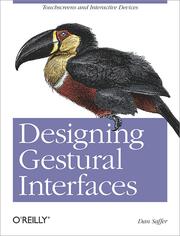| Listing 1 - 10 of 32 | << page >> |
Sort by
|

ISBN: 3540534547 3642762859 3642762832 Year: 1991 Publisher: Berlin Springer
Abstract | Keywords | Export | Availability | Bookmark
 Loading...
Loading...Choose an application
- Reference Manager
- EndNote
- RefWorks (Direct export to RefWorks)
User interfaces (Computer systems) --- Interfaces utilisateurs (Informatique) --- Congresses --- Congrès --- #KVIV:BB
Book
ISBN: 9783319238357 9783319238340 9783319238364 9783319354569 3319238345 Year: 2015 Publisher: Cham: Springer,
Abstract | Keywords | Export | Availability | Bookmark
 Loading...
Loading...Choose an application
- Reference Manager
- EndNote
- RefWorks (Direct export to RefWorks)
This book redefines community discovery in the new world of Online Social Networks and Web 2.0 applications, through real-world problems and applications in the context of the Web, pointing out the current and future challenges of the field. Particular emphasis is placed on the issues of community representation, efficiency and scalability, detection of communities in hypergraphs, such as multi-mode and multi-relational networks, characterization of social media communities and online privacy aspects of online communities. User Community Discovery is for computer scientists, data scientists, social scientists and complex systems researchers, as well as students within these disciplines, while the connections to real-world problem settings and applications makes the book appealing for engineers and practitioners in the industry, in particular those interested in the highly attractive fields of data science and big data analytics.
Programming --- Computer. Automation --- computers --- informatica --- maatschappij --- interfaces --- Informatique --- Interfaces utilisateurs (Informatique) --- Ordinateurs et civilisation

ISBN: 0596518390 9780596518394 Year: 2009 Publisher: Beijing: O'Reilly,
Abstract | Keywords | Export | Availability | Bookmark
 Loading...
Loading...Choose an application
- Reference Manager
- EndNote
- RefWorks (Direct export to RefWorks)
Book
ISBN: 9781399522762 Year: 2023 Publisher: Edinburgh : Edinburgh University Press,
Abstract | Keywords | Export | Availability | Bookmark
 Loading...
Loading...Choose an application
- Reference Manager
- EndNote
- RefWorks (Direct export to RefWorks)
The Graphic User Interface, or GUI, is the adhesive centre of today’s screen entertainment web. From films and television to apps and videogames, it holds together a multitude of media and shapes the way they are accessed, organised, created, consumed, and manipulated. However, it does not do so without leaving viscous traces, and Gooey Media: Screen Entertainment and the Graphic User Interface examines this residue and its consequences, revealing how the GUI exerts a powerful influence on contemporary media.Focusing on aesthetics and adopting a media agnostic approach, Jones explores cinema, streaming platforms, television, user-generated content, videogames, apps, virtual reality, VFX, design software, and more in order to show how they cross-pollinate with one another and with our desktop interfaces. The result is a new approach for analysing convergent media in the digital era
Book
ISBN: 3319399713 3319399721 9783319399713 Year: 2016 Publisher: [Cham]: Springer,
Abstract | Keywords | Export | Availability | Bookmark
 Loading...
Loading...Choose an application
- Reference Manager
- EndNote
- RefWorks (Direct export to RefWorks)
This book explores and evaluates accounts and models of autistic reasoning and cognition from a computational standpoint. The author investigates the limitations and peculiarities of autistic reasoning and sets out a remediation strategy to be used by a wide range of psychologists and rehabilitation personnel and will also be appreciated by computer scientists who are interested in the practical implementation of reasoning. The author subjects the theory of mind (ToM) model to a formal analysis to investigate the limitations of autistic reasoning and proposes a formal model regarding mental attitudes and proposes a method to help those with autism navigate everyday living. Based on the concept of playing with computer based mental simulators, the NL_MAMS, is examined to see whether it is capable of modeling mental and emotional states of the real world to aid the emotional development of autistic children. Multiple autistic theories and strategies are also examined for possible computational cross-overs, providing researchers with a wide range of examples, tools and detailed case studies to work from. Computational autism will be an essential read to behavioral specialists, researcher’s, developers and designers who are interested in understanding and tackling the increasing prevalence of autism within modern society today
Application software --- Logiciels d'application --- Arithmetic and logic units, Computer --- Artificial intelligence --- Intelligence artificielle --- Computer logic --- Logique informatique --- Computer Science --- Informatique --- Neurology --- Neurologie --- User interfaces (Computer systems) --- Interfaces utilisateurs (Informatique)
Book
ISBN: 9782212677546 2212677545 Year: 2020 Publisher: Paris: Eyrolles,
Abstract | Keywords | Export | Availability | Bookmark
 Loading...
Loading...Choose an application
- Reference Manager
- EndNote
- RefWorks (Direct export to RefWorks)
« Quels sont les secrets d'une expérience utilisateur réussie ? Découvrez les idées et les personnalités qui ont défini les contours de la discipline UX telle qu'elle est pratiquée aujourd'hui par les entreprises les plus innovantes. Découvrez comment adapter les méthodes UX dans les contextes agiles avec le Design Thinking, le Lean UX et le Design Sprint. Apprenez à mettre en œuvre les techniques UX qui caractérisent les produits exceptionnels (web, mobiles et IOT). Devenez stratège pour réussir la transformation UX de votre entreprise. Avec plus de 100 croquis et schémas accompagnés de textes courts, ce livre propose une approche très visuelle pour comprendre en un clin d'œil les stratégies présentées. Il est organisé en onze chapitres indépendants qui répondent chacun à une question de fond, au moyen d'études de cas concrètes, argumentées et chiffrées. Cette nouvelle édition revue et augmentée propose, entre autres, un nouveau chapitre pour maximiser l'impact du design au quotidien. À qui s'adresse cet ouvrage ? Aux professionnels de la nouvelle économie opérationnelle qui souhaitent consolider leur maîtrise de l'UX ; aux étudiants en design, informatique et business qui savent que l'UX est devenue une compétence essentielle aux entreprises ; aux décideurs qui souhaitent adapter leur entreprise aux nouvelles attentes de leurs clients. »--Quatrième de couverture.
User-centered system design. --- User interfaces (Computer systems) --- User-Computer Interface --- Conception participative (Conception de systèmes) --- Interfaces utilisateurs (Informatique) --- User-centered system design --- Sites Web --- Conception centrée sur l'utilisateur. --- Interfaces utilisateur (informatique) --- Design interactif. --- Développement. --- Conception.
Periodical
Abstract | Keywords | Export | Availability | Bookmark
 Loading...
Loading...Choose an application
- Reference Manager
- EndNote
- RefWorks (Direct export to RefWorks)
Computer. Automation --- Human-computer interaction --- User interfaces (Computer systems) --- Interaction homme-machine (Informatique) --- Interfaces utilisateurs (Informatique) --- Periodicals. --- Périodiques --- #TS:TCPW --- 681.3 --- Computer science --- Arts and Humanities --- Engineering --- Information Technology --- Mathematical Sciences --- Education & Careers --- Ergonomics --- General and Others --- Applied Mathematics --- 681.3* / / / / / / / / / / / / / / / / / / / / / / / / / / / / --- Interfaces, User (Computer systems) --- Human-machine systems
Book
ISBN: 3319157612 3319157620 9783319157610 Year: 2016 Publisher: Cham : Springer International Publishing : Imprint: Springer,
Abstract | Keywords | Export | Availability | Bookmark
 Loading...
Loading...Choose an application
- Reference Manager
- EndNote
- RefWorks (Direct export to RefWorks)
The increasing advances in electronics allows smaller and more powerful devices, bringing wearable computing closer to reality. However, most wearable computers are very distinguished and placed on clothes and accessories. This book tries to tackle this phenomenon by introducing a new wearable computing subfield called beauty technology. By using the body's surface as an interactive platform, the integration of technology into beauty products is explored and can be applied directly to ones skin, fingernails, and hair adding new functionality to beauty products using technology in a personal, seamless and fashionable way. An interdisciplinary approach is taken, exploring the design of Beauty Technologies such as Conductive Makeup, Tech Nails, Hairware and FX e-makeup in order to create novel interfaces for Human Computer Interaction.
Computer science. --- User interfaces (Computer systems). --- Computer Science. --- User Interfaces and Human Computer Interaction. --- Wearable computers. --- Human-computer interaction. --- Computer-human interaction --- Human factors in computing systems --- Interaction, Human-computer --- Human engineering --- User-centered system design --- User interfaces (Computer systems) --- Mobile computing --- Portable computers --- Wearable technology --- Informatics --- Science --- Interfaces, User (Computer systems) --- Human-machine systems --- Human-computer interaction --- Computer Science --- Informatique --- Interfaces utilisateurs (Informatique)
Book
ISBN: 3319303325 3319303341 9783319303321 Year: 2016 Publisher: [Cham]: Springer,
Abstract | Keywords | Export | Availability | Bookmark
 Loading...
Loading...Choose an application
- Reference Manager
- EndNote
- RefWorks (Direct export to RefWorks)
This book explores how our lives and social interactions have become split between two intertwined, but not integrated, realities: the physical and the digital. Our sense of presence in the here and now has become fragmented, and yet earlier design approaches reinforced the problem, rather than leading to improvements. The authors address these issues by laying out a new human computer interaction (HCI) design approach – human-experiential design – rooted in a return to first principles of how people understand the world, both consciously and unconsciously. The application of this approach to the design of blended reality spaces is described in detail. Examples and scenarios of designing them to overcome the problems inherent in a variety of mixed reality settings are provided. Human-experiential design of presence in everyday blended reality will appeal to undergraduate and graduate students and researchers in interaction design, psychology, HCI and computer application studies, as well as practicing interaction designers and computer professionals. It will also be of interest to communication, media and urban design students, and to all readers with an interest in the technology-mediated future
Computer science. --- User interfaces (Computer systems). --- Computer Science. --- User Interfaces and Human Computer Interaction. --- Interfaces, User (Computer systems) --- Informatics --- Science --- User-centered system design. --- Human-computer interaction. --- User interface design & usability. --- Human-machine systems --- Human-computer interaction --- Computer Science --- Informatique --- User interfaces (Computer systems) --- Interfaces utilisateurs (Informatique)
Book
ISBN: 3319238345 3319238353 9783319238340 Year: 2015 Publisher: Cham : Springer International Publishing : Imprint: Springer,
Abstract | Keywords | Export | Availability | Bookmark
 Loading...
Loading...Choose an application
- Reference Manager
- EndNote
- RefWorks (Direct export to RefWorks)
This book redefines community discovery in the new world of Online Social Networks and Web 2.0 applications, through real-world problems and applications in the context of the Web, pointing out the current and future challenges of the field. Particular emphasis is placed on the issues of community representation, efficiency and scalability, detection of communities in hypergraphs, such as multi-mode and multi-relational networks, characterization of social media communities and online privacy aspects of online communities. User Community Discovery is for computer scientists, data scientists, social scientists and complex systems researchers, as well as students within these disciplines, while the connections to real-world problem settings and applications makes the book appealing for engineers and practitioners in the industry, in particular those interested in the highly attractive fields of data science and big data analytics. .
Computer Science --- Engineering & Applied Sciences --- Social media. --- Online social networks. --- Electronic social networks --- Social networking Web sites --- User-generated media --- Computer science. --- User interfaces (Computer systems). --- Computers and civilization. --- Computer Science. --- User Interfaces and Human Computer Interaction. --- Computers and Society. --- Social media --- Social networks --- Sociotechnical systems --- Web sites --- Communication --- User-generated content --- Informatics --- Science --- Virtual communities --- Civilization and computers --- Civilization --- Interfaces, User (Computer systems) --- Human-machine systems --- Human-computer interaction --- Informatique --- Interfaces utilisateurs (Informatique) --- Ordinateurs et civilisation
| Listing 1 - 10 of 32 | << page >> |
Sort by
|

 Search
Search Feedback
Feedback About UniCat
About UniCat  Help
Help News
News